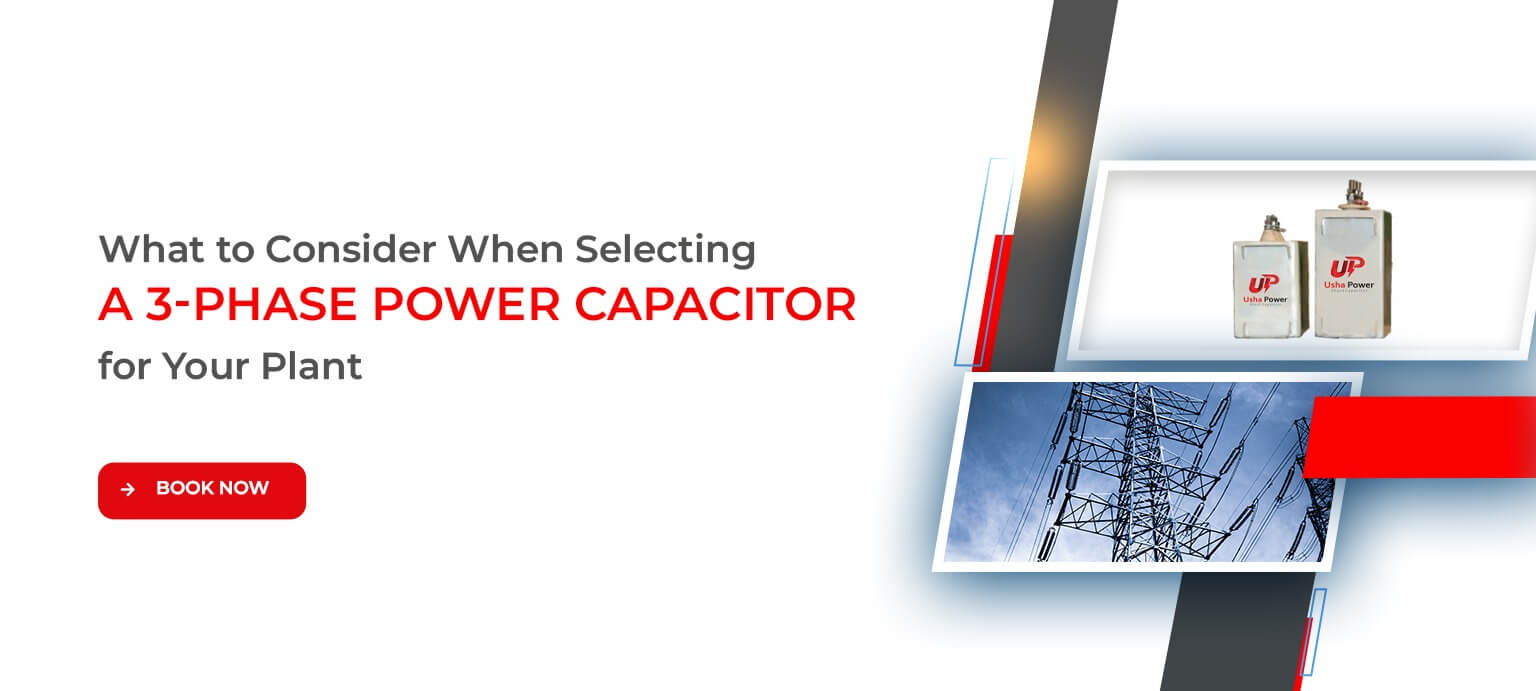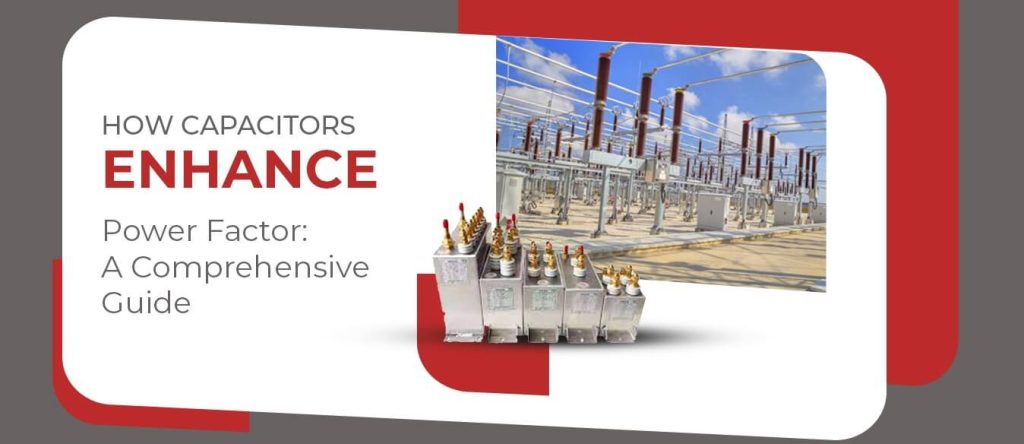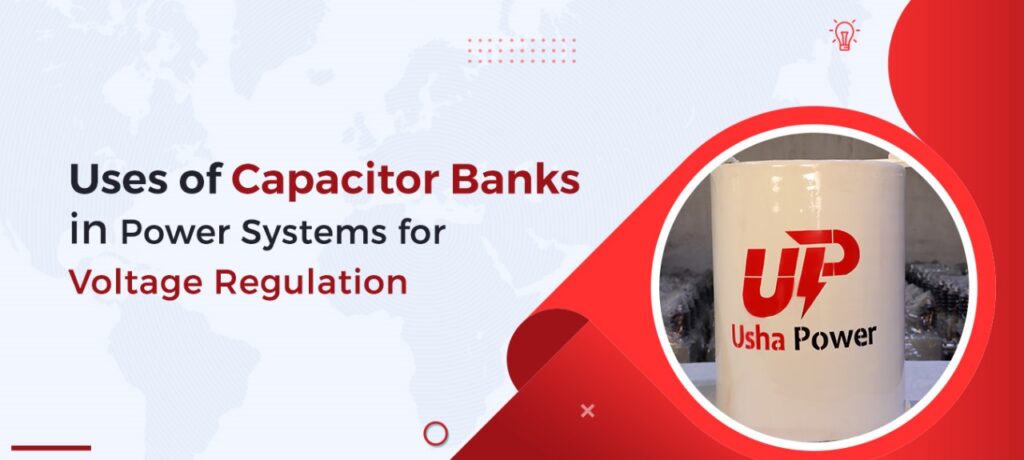Industries and plants rely on efficient power management to ensure smooth operations, reduce energy costs, and prevent equipment failures. One of the critical components in achieving this goal is the 3-phase power capacitor. These devices are used for power factor correction, voltage stabilization, and reducing energy losses in electrical systems. However, selecting the right 3-phase power capacitor for your plant requires careful evaluation of multiple factors to ensure optimal performance and long-term reliability. This guide will help you understand the key considerations when choosing a 3-phase power capacitor for your facility.
1. Understand Your Plant’s Power Factor Needs
Power factor is a measure of how efficiently electrical power is being used in your plant. A low power factor can result in higher electricity bills, increased energy losses, and penalties from utility companies. Before selecting a capacitor, assess your plant’s current power factor. This can be done through a power factor analysis or by consulting an energy audit professional. Once you understand your plant’s requirements, choose a 3-phase power capacitor that can correct the power factor to an optimal range, typically between 0.95 and 1.
2. Determine the Required Reactive Power (kVAR)
The reactive power, measured in kilovolt-amperes reactive (kVAR), indicates the amount of energy the capacitor needs to compensate for reactive power in your system. To calculate the required kVAR, evaluate the total load and the current power factor of your plant. This calculation is crucial because under-sizing the capacitor may fail to achieve power factor correction, while over-sizing it can cause over-compensation, leading to voltage issues and equipment damage. Manufacturers and energy consultants can help you determine the appropriate kVAR rating for your specific application.
3. Evaluate the Voltage Rating
The voltage rating of a 3-phase power capacitor should match your plant’s electrical system voltage. Capacitors are available in various voltage ratings, such as 400V, 440V, 480V, and higher. Selecting a capacitor with the wrong voltage rating can result in inefficiencies or even equipment failure. Ensure that the capacitor you choose is compatible with your system’s operating voltage and can handle voltage fluctuations without degradation.
4. Assess the Harmonic Distortion in Your System
Harmonic distortion caused by non-linear loads, such as variable frequency drives (VFDs) and uninterruptible power supplies (UPS), can significantly impact the performance of 3-phase power capacitors. High levels of harmonics may lead to overheating, reduced lifespan, or capacitor failure. If your plant operates with significant harmonic distortion, consider using capacitors with built-in harmonic filters or detuned reactors to protect the capacitor and maintain system stability.
5. Evaluate the Operating Conditions
Industrial plants often have varying environmental conditions, such as high temperatures, humidity, or dust. These factors can affect the performance and lifespan of 3-phase power capacitors. Choose capacitors designed to withstand the specific conditions of your plant. Look for features such as robust enclosures, high-temperature tolerance, and corrosion-resistant materials. Additionally, ensure proper ventilation and cooling mechanisms are in place to prevent overheating.
6. Verify Compliance with Industry Standards
When selecting a 3-phase power capacitor, ensure it meets industry standards and certifications, such as IEC (International Electrotechnical Commission) or UL (Underwriters Laboratories). Compliance with these standards guarantees that the capacitor is safe, reliable, and built to perform under specified conditions. Using certified capacitors can also simplify regulatory inspections and instill confidence in your plant’s electrical system.
7. Consider the Capacitor Type and Technology
3-phase power capacitors come in various types, including dry-type, oil-filled, and self-healing capacitors. Each type has unique advantages depending on the application. Dry-type capacitors are lightweight and environmentally friendly, making them suitable for modern installations. Oil-filled capacitors offer better heat dissipation and are often used in heavy-duty applications. Self-healing capacitors can recover from minor dielectric breakdowns, providing enhanced reliability. Evaluate the pros and cons of each type to select the best fit for your plant’s needs.
8. Analyze the Total Cost of Ownership
While the initial cost of a 3-phase power capacitor is an important consideration, evaluating the total cost of ownership (TCO) is crucial. This includes installation costs, maintenance requirements, energy savings, and expected lifespan. High-quality capacitors may have a higher upfront cost but can deliver better performance and durability, reducing long-term expenses. Work with trusted suppliers to strike a balance between cost and quality.
9. Plan for Scalability and Future Expansion
Your plant’s power requirements may change over time due to equipment upgrades, process changes, or capacity expansion. Selecting a 3-phase power capacitor with modularity or scalability options allows you to easily adapt to future needs. Ensure the capacitor can integrate seamlessly with additional units or advanced monitoring systems for a future-proof solution.
10. Prioritize Safety Features
Safety is a critical factor when installing 3-phase power capacitors. Look for capacitors with built-in safety features, such as pressure-sensitive interrupters, thermal protection, and over-current protection. These features help prevent accidents, equipment damage, and downtime caused by capacitor failures. Additionally, ensure proper installation practices are followed to minimize risks.
11. Choose a Reliable Manufacturer and Supplier
Selecting the right manufacturer and supplier is as important as choosing the right capacitor. Look for manufacturers with a proven track record of delivering high-quality products and exceptional customer support. Reliable suppliers can also provide technical guidance, installation assistance, and after-sales service to ensure your plant’s power system operates efficiently.
12. Leverage Smart Monitoring and Control
Modern 3-phase power capacitors often come equipped with smart monitoring and control features. These systems allow real-time monitoring of capacitor performance, enabling predictive maintenance and reducing unexpected downtime. If your plant uses advanced automation systems, ensure the capacitor can integrate with existing industrial control systems (ICS) or IoT platforms for seamless operations.
13. Evaluate Maintenance Requirements
Like any electrical equipment, 3-phase power capacitors require periodic maintenance to ensure optimal performance and longevity. When selecting a capacitor, consider its maintenance requirements, such as cleaning, inspections, and component replacement. Opt for models with minimal maintenance needs and easily accessible components to simplify upkeep and reduce downtime.
14. Review the Warranty and Support Terms
Before finalizing your purchase, carefully review the warranty terms and support options provided by the manufacturer or supplier. A comprehensive warranty can safeguard your investment against defects or failures. Additionally, responsive technical support can help resolve issues quickly and ensure the capacitor continues to function efficiently.
Final Thoughts
Selecting the right 3-phase power capacitor for your plant is a critical decision that impacts your facility’s energy efficiency, operational reliability, and cost savings. By carefully evaluating factors such as power factor needs, kVAR requirements, voltage rating, harmonics, operating conditions, and safety features, you can make an informed choice. Working with a reliable supplier and leveraging modern technologies further enhances the benefits of your investment. With the right capacitor in place, your plant can achieve optimal power management and long-term performance.
If you are looking for a high-quality and reliable capacitor for your plant, Usha Power is the partner you can rely on. Our capacitors are expertly designed to meet the diverse demands of industrial and commercial applications, delivering superior performance, energy efficiency, and long-lasting reliability. We offer a wide range of capacitors carefully engineered to accommodate varying voltage requirements, operate under challenging conditions, and address systems with harmonic distortion. With Usha Power, you gain access to innovative technologies, durable designs, and exceptional customer support. Our dedicated team of experts works closely with you to identify and provide the ideal capacitor for your plant, ensuring smooth integration and optimal functionality. Partner with us to enhance your plant’s energy efficiency, reduce operational costs, and achieve long-term excellence in power management.





